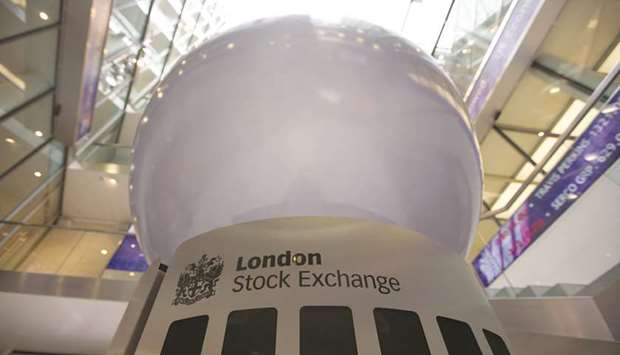Oil prices wobbled but remained on course for their fifth weekly decline, dogged by concerns over a stubborn supply glut.
European stock markets are “on the back foot, with a host of eurozone PMI surveys...providing a somewhat cautious assessment,” said analyst Joshua Mahony at trading firm IG.
Shares in London saw a fourth straight day of losses a year to the day after Britain shocked its neighbours by voting to leave the European Union, with the FTSE 100 index of leading shares losing 0.2%.
Sterling strengthened 0.4% yesterday but Tuesday’s close of $1.2661, but this represents a drop of 15% from its value the day before the Brexit vote.
“Stock markets have fallen yet again as the disinflation fear is still doing the rounds,” said David Madden, analyst with CMC Markets, who added traders were concerned oil’s price weakness would put “downward pressure” on inflation, damping down growth expectations.
On Brexit, Madden noted that since this time last year “it has certainly been a rocky ride to say the least.”
Eurozone private sector business activity slowed sharply in June but over the second quarter recorded its fastest expansion in six years, a closely watched survey showed on Friday.
Analysts said that while the downturn in the headline readings was disappointing, the economy continued to put in a strong performance.
Data monitoring company IHS Markit said its June Composite Purchasing Managers Index (PMI) came in at 55.7 points, the lowest reading in five months and down from 56.8 in May.
Any reading above the boom-bust 50 points line indicates the economy is expanding.
“After a string of exceptionally strong figures, the composite PMI for the eurozone has come down to earth in June,” said UniCredit economist Edoardo Campanella.
“While the decline in the composite PMI was driven by a slowdown in the services industry, which is often subject to substantial monthly volatility, the manufacturing sector remains in good shape,” he cautioned.
The PMI measures companies’ willingness to invest in their business and so gives a good idea of how well the underlying economy is performing.
Asian stock markets limped into the weekend, with energy firms still struggling after a bruising few days.
Oil prices were barely higher coming to the end of a tumultuous week which saw New York crude collapse to a ten-month low on concerns over a global supply glut and US production overshadow output cuts by both Opec and Russia.
The week’s sharp losses have hurt energy firms and, despite another pick-up in the commodity, they continue to struggle.
CMC’s Madden suggested that “since the same old worries about over-supply persist the bearish sentiment will hang around for some time.”
Meanwhile, traders were tracking events in Washington where Republican Senators unveiled a revised healthcare bill to unpick Obamacare, which market players hope will be able to pass through Congress.
President Donald Trump is hoping the revised bill can open up a path for his economic agenda.
In London, the FTSE 100 closed down 0.2% at 7,424.13 points; Paris — CAC 40 fell 0.3% at 5,266.12 points and Frankfurt — DAX 30 ended down 0.5% at 12,733.41 points yesterday.

